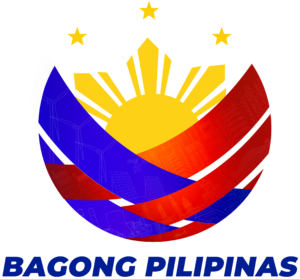REINVENTING THE FILIPINO HERO
by Quennie Ann J. Palafox
People grow up with their favorite childhood heroes motivating them in their everyday lives. Children often dream of becoming Clark Kent, whose alter ego, Superman, uses superhuman abilities in saving mankind from evil forces. Hence, we are always confronted with the question of heroism as we are always in search for a role model, someone who will set an example for the whole citizenries to follow. Looking back to what Rousseau said, “men are born free, but everywhere they are in chains”, freedom is an inherent right but there are many people in other parts of the world who are deprived of this right. This may not be their own will and that it could have been imposed upon them. Thus, anyone who seeks for the attainment of an ideal society by breaking away from the shackles of oppression for the interest of the general public is worthy to be called hero.
The ideal image of a hero in the Philippines was epitomized by no less than our foremost national hero, Jose Rizal, when he died for the cause of our country’s freedom. Above all, he struggled to pursue his goals amidst the face of oppositions. However, Rizal was not the first Philippine hero as there were Lapu-Lapu, the Gomburza, Diego Silang and others who are equally considered heroes. We have noble men during the Philippine-American war such as Gen. Antonio Luna, Macario Sakay, Juan Cailles, Gregorio del Pilar and World War II guerillas who fought against the Japanese forces during the Japanese occupation of the Philippines. Heroes are not only those who raised arms to defeat the foreign occupational forces as there are individuals who use peaceful means to fight for liberty, men like Marcelo H. del Pilar and Apolinario Mabini and others who served as the moving spirit behind the revolution. We must not forget men like labor leaders and socialists such as Isabelo delos Reyes, Pedro Abad Santos and Jose Nava who stood out and stirred the peasants to clamor for improvement in their working conditions. In a strict sense, these men are to be regarded as heroes for their selfless advocacy in uplifting the welfares of the poor workers.
Webster’s New Encyclopedic Dictionary 1993 Revised Edition gives the following definitions of the word hero: a) a mythological or legendary figure often of divine descent and endowed with great strength or ability b) an illustrious warrior c) a person admired for achievements and qualities d) one that shows great courage e) the chief male figure in a literary work or in an event or period. This definition takes the shape of a literary figure, a character which is larger than life such as epic heroes like Beowulf, Lam-Ang, Hercules and many others.
In reality, heroes are not born, they are chosen by the society among men deserving esteem and emulation. There must be public acclamation and pronouncement of their contributions to the society. Otherwise, they will be similar to others who unselfishly helped for the betterment of others and yet they are unrecognized.
As years passed by, the concept of hero was revolutionized due to the different challenges of our times. More and more Filipinos are being regarded as heroes despite not having sacrificed their lives for the country. Today, we have OFW’s working as nurses, seaman, doctors, care-givers, teachers, lawyers, and domestic-helpers whom we branded now as modern heroes or “bagong bayani”, for taking active part in nation building through their remittances which save our country from economic breakdown.
There are several times that “hero” is often misused and abused. Hero is becoming a misnomer for its incorrect usage. Not everyone has what it takes to be a true hero, but there are persons who are not really heroes at all being labeled as heroes such as the opportunist politicians, who pretend to be pro-poor in front of the cameras to solicit support in the election.
Last August 25, 2011, the National Historical Commission of the Philippines awarded Janela Lelis, a young lass from Bicol, who saved the Philippine flag at the height of storm Juaning that ravaged Bicol province last month. A photo of Janela carrying the flag was posted on social networking sites and this caught the attention of the public and media.
Lelis is a role model worthy of emulation for not letting obstacles such as physical danger stand on her way. She has demonstrated bravery, which is the fundamental trait of a hero. Our society is in need of a hero who shall be the source of inspiration for people who desire change.

